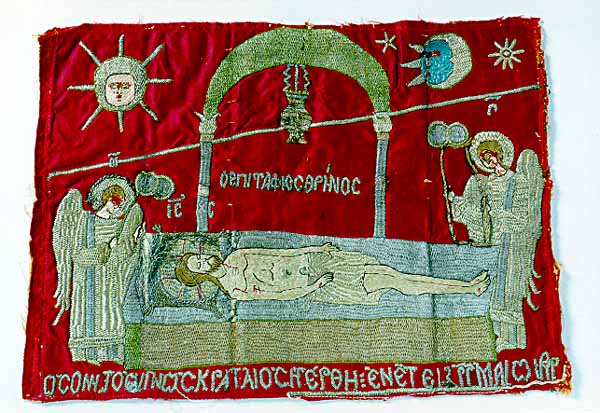Τ' Αη Γιώργη
 Πολύχρονη, μες στα κίτρινά σου πάντοτε
Πολύχρονη, μες στα κίτρινά σου πάντοτεΣε πλεόν ευτυχισμένες εποχές, όταν ο χρόνος δεν ήταν τόσο Διοκλητιανός, δε γιορτάζαμε τα γενέθλια, ποιος να θυμάται τι και πώς, ποιος ασικρίτης να κρατήσει μαρτυρία της γέννησης, ποιο σύστημα χρονολόγησης, ποιο φεγγάρι και τι ινδικτιώνος, τι απο Κτίσεως Κόσμου. Έτσι, μέναμε στον κύκλο των ονομάτων, στο άρμα της θεότητος, στο αμόνι της αναλογίας και των λαμπρών ομωνύμων μας. Πολλοί είχαν και το τραγούδι τους, σαν ήρωες από λαϊκά μυθιστορήματα που περιμένουν το Νικόλαο Βλαστό υπομονετικά στη Βενετία να καταπιαστεί μαζί τους. Όπως το κάτωθι:
Άγιε μου Γιώργη αφέντη μου κι αφέντη καβαλάρη
αρματωμένος με σπαθί και με χρυσό κοντάρι ...
Άγιος είσαι στη θωριά κι άγιος στη θεότη
παρακαλώ βοήθα με άγιε μου στρατιώτη
Από το άγριο θεριό και δράκοντα μεγάλο
όπου τον πήγαιν' άνθρωπο κάθε πρωί και άλλον
Αν δεν τον πήγαιν' άνθρωπο κάθε πρωί στην ώρα.
νερό δεν άφηνε να πιεί κανείς μέσα στη χώρα.
Τα βουλετιά τα ρίξανε τίνους θέλουν να τύχουν.
Και τύχανε τα βουλετιά εις τη βασιλοπούλα
όπου την είχε η μάνα της μία και μοναχούλα
Ο βασιλιάς σαν τ' άκουσε πολύ βαρύ του φάνη.
- Το βιός μου όλο πάρτε το και το παιδί μου αφήστε.
Για περισσότερες λεπτομέρειες και ολίγη ψαλτική μελωδία, βλ. http://www.aegean.gr/culturelab/Sounds/sound44.htm

Έτσι, σήμερα είναι μέρα γιορτινή, ακόμη και στον Σουρρεαλισμό, ανατριχιάζουν οι στίχοι του Γκάτσου. Κάτι που μοιάζει με Ρ.Μ.Ρίλκε μα δεν είναι.
Ο ιππότης κι ο θάνατοςΚαθώς σε βλέπω ακίνητο
με του Ακρίτα τ' άλογο και το κοντάρι τ' Αι Γιωργιού
να ταξιδεύεις στα χρόνια
Μπορώ να βάλω κοντά σου
μια νεραντζιά στου φεγγαριού
τους χιονισμένους κάμπους
κι αυτά τα σίδερα που φορείς
μπορώ να σου τα στολίσω
μ' ένα κλωνί βασιλικό κι ένα ματσάκι δυόσμο
Μα εγώ που είδα τους απογόνους σου σαν πουλιά
να σκίζουν μιαν ανοιξιάτικη αυγή
τον ουρανό της πατρίδας μου
θα βάλω τώρα κοντά σου
τα πικραμένα μάτια ενός παιδιού
μέσα στη λάσπη και το αίμα της Ολλανδίας
Αυτός ο μαύρος τόπος
θα πρασινίσει κάποτε
Το σιδερένιο χέρι του Γκετς
θ' αναποδογυρίσει τ' αμάξια
θα τα φορτώσει θημωνιές από κριθάρι και σίκαλη
Και τότε πάλι στις σπηλιές των ποταμών θ' αντηχήσουν
βαριά σφυριά της υπομονής
Όχι για δαχτυλίδια και σπαθιά
αλλά για κλαδευτήρια κι αλέτρια.
(όπως το διάλεξε ο Χατζιδάκις, αλλά ας το δει κανείς κι ολόκληρο με την αγγλική μετάφραση στο χρήσιμο πάντα http://genesis.ee.auth.gr/dimakis/poetrygreece/6/11.html)
Labels: Friends, Popular Culture










